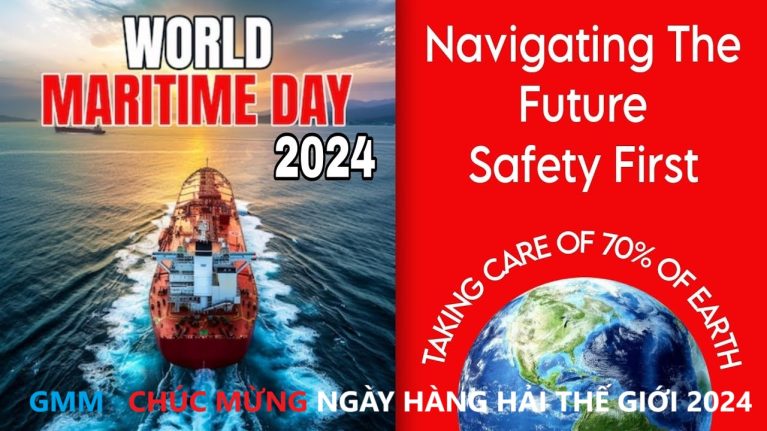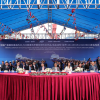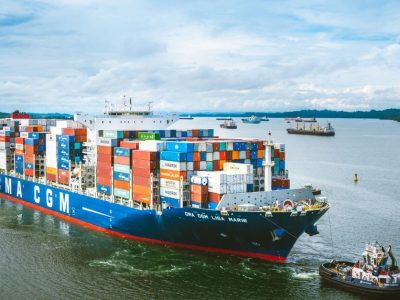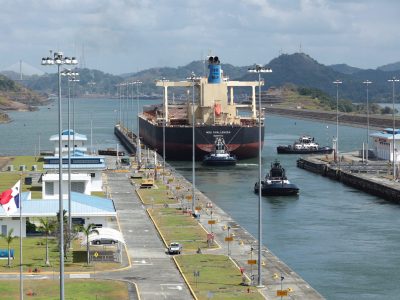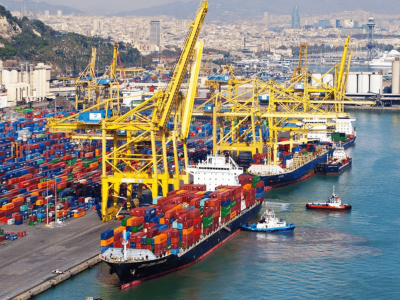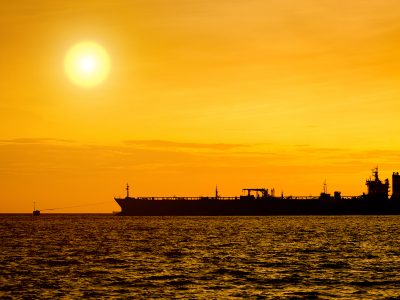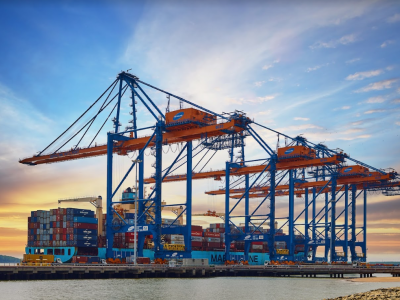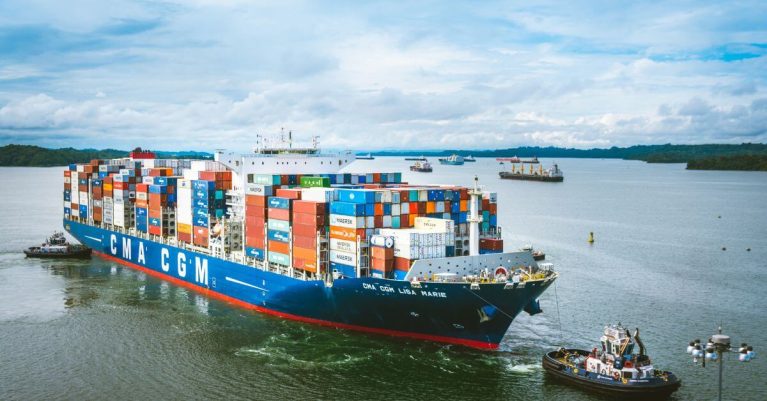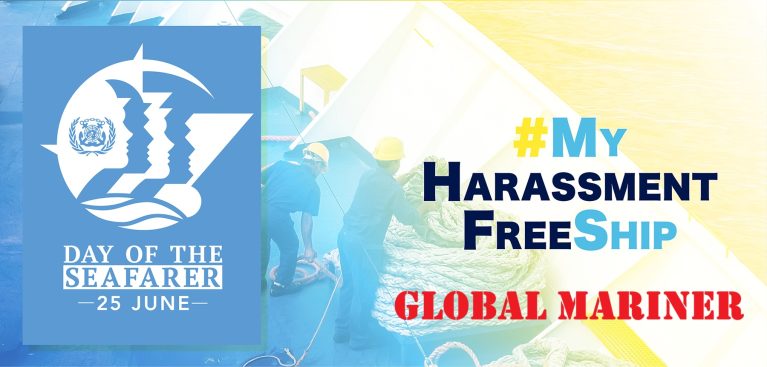
Ngành Hàng Hải với sự đóng góp của những Người Đi Biển đã góp một phần lớn trong sự nghiệp phát triển nền kinh tế cũng như giá trị ảnh hưởng của lực lượng lao động này đến cộng đồng xã hội mỗi quốc gia đặc biệt là quốc gia Biển cũng như kinh tế tòan cầu. Chính vì thế, từ năm 2010, Tổ chức Hàng hải quốc tế (IMO) đã Quyết định lấy ngày 25 tháng 6 hàng năm là “Ngày thuyền viên – Day of The Seafarer”. Đây là một sự tôn vinh, công nhận đầy đủ và sự biết ơn sâu sắc tới sự đóng góp, sự hy sinh mà Người Đi Biển nói chung và Thuyền Viên nói riêng phải chịu do thời gian dài sống và làm việc trên biển xa cách gia đình và cộng đồng xã hội.
Ngày Thuyền viên Thế giới 25/6/2025, Ban Lãnh đạo và toàn thể Cán bộ công nhân viên Công ty Cổ phần Quản lý GLOBAL MARINER ( GMM ) thân ái gửi tới tất cả các sỹ quan, thuyền viên trực thuộc và hợp tác Công ty Cổ phần Quản lý GLOBAL MARINER ( GMM ) cũng như tất cả những Người Đi Biển toàn thế giới – những người anh hùng thầm lặng trên biển cả – lời tri ân sâu sắc, lời chúc sức khỏe, bình an và những hành trình thuận buồm xuôi gió.
Chủ đề của Ngày Thuyền viên năm nay do Tổ chức Hàng hải Quốc tế (IMO) phát động là:
“Tàu của tôi – Không bạo lực và quấy rối” ( #My_Harassment_Free_Ship )
Đây là lời kêu gọi mạnh mẽ vì một môi trường hàng hải tôn trọng, an toàn và không có chỗ cho quấy rối hay phân biệt đối xử. Mỗi con tàu không chỉ là nơi làm việc, mà còn là mái nhà giữa đại dương – nơi mà mọi thuyền viên xứng đáng được trân trọng và bảo vệ.
Chúng ta tin rằng: Một con tàu tử tế bắt đầu từ sự tôn trọng và sẻ chia.GLOBAL MARINER ( GMM ) sẵn sàng cùng chung tay với cộng đồng hàng hải, góp phần lan tỏa thông điệp tích cực về môi trường làm việc không quấy rối, không định kiến và đầy nhân văn.
Thân chúc các bạn và gia đình luôn mạnh khỏe, vững vàng trên biển lớn !!!

Shipping is essential to world trade, yet too many seafarers face unacceptable behaviours that compromise their safety, mental well-being, and career opportunities, says Professor Maximo Q. Mejia, Jr., President of the World Maritime University (WMU). He highlighted that the 2025 Day of the Seafarer theme ‘My Harassment-Free Ship’ is a bold initiative to promote a culture of respect and zero tolerance for bullying and harassment at sea.
“On 25 June, we join the global maritime community in celebrating the Day of the Seafarer, to honour the vital contributions of seafarers who keep global trade moving. This year’s theme, ‘My Harassment-Free Ship’ highlights a bold and necessary initiative to promote a culture of respect and zero tolerance for bullying and harassment at sea,” Mejia Jr. said. “Studies reveal that over 50 percent of female seafarers, and many male counterparts, have experienced harassment on board – this is a call to action.”
The WMU president said that it is vital to the well-being of everyone in the community and the sustainability of the overall maritime industry that there is zero tolerance for harassment and bullying. That safe and accessible reporting mechanisms are provided. “Seafaring offers a unique and rewarding career. At the World Maritime University, we are committed to advancing a maritime culture rooted in dignity, equity, and safety where every ship is harassment-free.”
Active Seafarers Face Harassment and Bullying
The Sailors’ Society released the ‘State of the Industry Snapshot: bullying and harassment at sea in time for the Day of the Seafarer 2025, putting the spotlight on active seafarers and gender. The report stated that active seafarers are up to 10 times more likely to experience and witness bullying compared to those who have never been at sea. It revealed that female cadets are disproportionately affected by bullying and harassment at sea – the number of African females experiencing bullying is more than double that of their male counterparts. In Southeast Asia, females are twice as likely to experience bullying compared to males, and female reporting rates often exceed those of their male counterparts, particularly in Southeast Asia and the UK.
The Sailors’ Society report stated that gender disparities in witnessing bullying are less pronounced, but still evident. Reporting remains a critical area of focus, with regions like China and the UK leading in willingness to address incidents, setting a benchmark for others. Respondents revealed widespread issues of verbal abuse, physical aggression, social exclusion, cyberbullying, and sexual harassment in the maritime industry, varying by region.
This highlights a deeply ingrained problem that compromises the safety and well-being. The Sailors’ Society called for immediate action to foster a respectful and inclusive culture – policies and accountability across all levels. Johan Smith, Head of Wellness Sailors’ Society, said bullying and harassment continues to harm the safety, dignity, and well-being of far too many seafarers. “Some contributors have gone so far as to suggest that these behaviors are endemic – an entrenched issue within the very fabric of the maritime industry.”
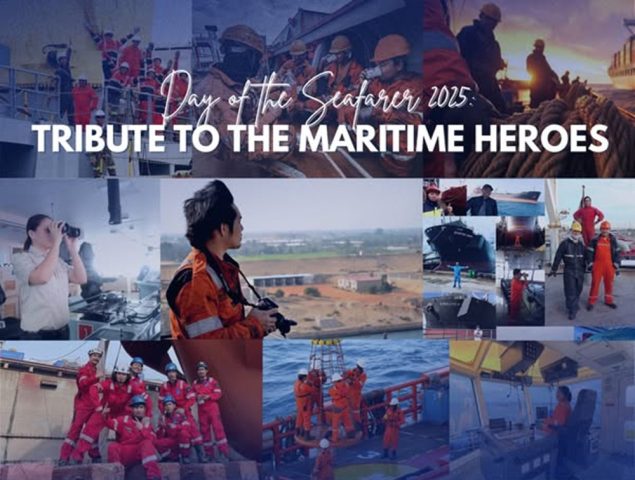
Underreporting and Lack of Accountability
Moreover, data highlights significant barriers to reporting bullying and harassment in the maritime industry. This shows a troubling reliance on individuals handling incidents themselves rather than seeking formal resolutions. Fear of retaliation and a widespread belief that reporting would lead to no meaningful change indicate a systemic failure to build trust and accountability within the industry.
Sailors’ Society shared a case study, where a seafarer revealed being frequently subjected to inappropriate comments from male colleagues. “A senior officer made unwanted advances and pressured me to spend time alone with him under the pretext of ‘training’ – I am a female cadet on board a container vessel. When I refused, he spread false rumours that I was incompetent.” And another respondent shared – “During my short time at sea, I have experienced varying forms of discrimination and harassment as a female seafarer, including verbal and physical. The majority of what I have experienced has been in the form of sexist, overly sexualized, or discriminatory comments. I feel that I haven’t had the same opportunity to learn and focus on my training as my male peers did to certain situations that occurred throughout my training.”
Sailors’ Society stated that the majority of cadets across all the regions felt that stronger enforcement of anti-bullying and harassment policies and strong leadership was the way forward. “They placed this above more education and clearer policies. Cadets and ratings from Southeast Asia, China, the UK, and Europe, all felt the least helpful suggestions was support groups or counselling, while North Asia and African cadets felt the least helpful suggestions was anonymous reporting.”
The report said the lack of satisfactory resolution perpetuates harmful behaviour and undermines efforts to create a safe and supportive working environment. Immediate action is necessary to strengthen response mechanisms, ensure accountability, and restore confidence that reporting will lead to meaningful change.

Need for Zero-Tolerance Policies
UN Secretary-General Antonio Guterres said seafarers keep global trade flowing, delivering food, medicine, and vital goods around the world. “Their work is essential to our lives and economies. Yet too often, their rights are denied, and their safety is put to risk. This year, we shine a light on harassment and discrimination faced by many seafarers, including women, young workers and those in isolated or vulnerable conditions.”
Guterres stated that zero-tolerance policies and inclusive workplace cultures that support the mental health of seafarers are essential. “So too, is coordinated action among governments, industry, and workers to uphold labour standards and ensure safe, fair and humane conditions at sea.” He urged the industry, stakeholders and communities to commit to equality, respect, and dignity.
IMO Secretary-General Arsenio Dominguez said seafarers are the lifeline of international trade, but they continue to face unacceptable levels of bullying, harassment, and discrimination, which significantly impact their mental health, safety, and career progression. “Equally concerning is the pervasive culture of silence, driven by fear of retaliation, mistrust in reporting mechanisms, and scepticism about meaningful resolutions.”
Dominguez highlighted IMO’s ‘My Harassment-Free Ship’ initiative that is working to address these systemic issues. “By promoting proactive industry action, accessible reporting channels, and robust accountability mechanisms, we seek not merely to respond, but to prevent. It is only through collaborative effort and unwavering commitment that we can dismantle harmful practices and nurture a culture of zero tolerance towards harassment.”
Author: Nandika Chand




